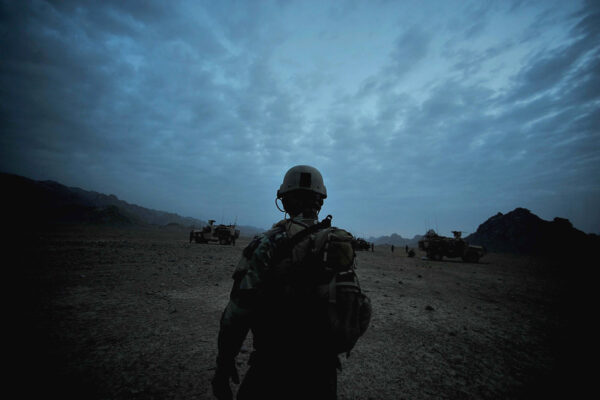
On September 10, 2001, Afghanistan was at best a distant memory to many Americans as the land where the Soviet Union’s Red Army had faced its “Vietnam War.” While many Americans are much more familiar with the country after twelve years of armed conflict, the people of Afghanistan had been suffering the effects of war long before the United States invaded. Aside from dwindling American news coverage of the region, the progress of the quality of life for the Afghan people continues to be impaired by the growing pains of a government in transition.
Often forgotten in the regales of military heroism and occasional fits of blind nationalism is the silent plight of Afghan women. It would be easy to assume that the perpetual kinetic violence of protracted combat would be the most difficult issue to overcome for Afghanistan but that is not the case. Education, communication and greater connectivity with the outside world remain the only true solutions to the issues that face Afghanistan.
Historically, Afghanistan has been a patriarchal country that still refuses to cut ties with the extreme customs of the Wahhabi doctrine.
The Wahhabi is by no means a representation of mainstream Islam and only adds fuel to Western policies that ban the public use of a burqa and lead to Quran book burnings.
Afghanistan’s misogynistic culture can be seen everywhere. On Highway 517, which connects Farah to Highway 1, men can often be seen driving their trucks with a goat in the passenger seat. Exposed to the elements in the back of the flat bed are his children and his wife. In the city of Farah, women could be seen walking many paces behind their husbands.
The view from the ground was no different. The stench of the local sanitation melts any fresh air in the 100+ degree heat. I can recall when I saw a little girl poking her head around the nearest compound and smiling. After a few more peeks, her brother gave her the all clear. Timid, she inched closer and pointed to the pens attached to my sleeve. I took one and tossed it in her direction. She pounced on it with the hop of Tigger from Winnie the Pooh and took a few more steps back. I reached into my bag and rolled over a bottle of Gatorade. She picked it up with a smile as her brother chased her away.
That brief oasis of innocence and humanity in a theater of war occurred three years ago. Since then, a grim reality has sunk into my mind and haunted me to this day — that may have been the nicest thing anyone will ever do for her.
Women in Afghanistan are perhaps the greatest — and most forgotten — casualties in the fight for Afghanistan’s soul. If the security transition to Afghan forces fails, they will have the most to lose.
Under Taliban rule, women had no legal rights. They could be shot, stoned and mutilated. Sadly, these basic human rights are still being violated. According to Reuters, Afghan women can still be targeted while their attackers operate more or less with impunity. Even during the period of international intervention, little girls continued to be sold by their fathers to satisfy debts, in addition to violent attacks on schools for girls established by NATO forces.
That is why withdrawal from Afghanistan is not an option. While Americans will never forget 9/11, we all cannot ignore the plight of women in Afghanistan.
This article was published as the winning entry in an internship competition at Wikistrat, the world’s first massively multiplayer online consultancy.

Key words in the article are “invade” and “Vietnam”. We cannot invade every country that is guilty of human rights violations and yes, Afghanistan could be called another Vietnam, not just for the Russians, but for the US also. As a veteran of two tours in Vietnam, Desert Storm and two in OIF I will suggest that we only provide these countries with a common enemy. Just as Egypt recently expelled a radical Islamic leader, these countries will eventually evolve into more equitable gender roles. It is not the responsibility of the US to expedite that process. We have issues to address at home. Dale Hill, CSM Ret.
Keen insights. However, continued NATO/US military presence is not a long-term solution to Afghanistan’s gender inequality and human rights problems – it is only a short-term fix. To really solve those problems, we must combat religious extremism on the ideological front and its causes in the economic, cultural, social, and political domains. No easy answers or quick fixes there, but it is a better framework building sustainable change.